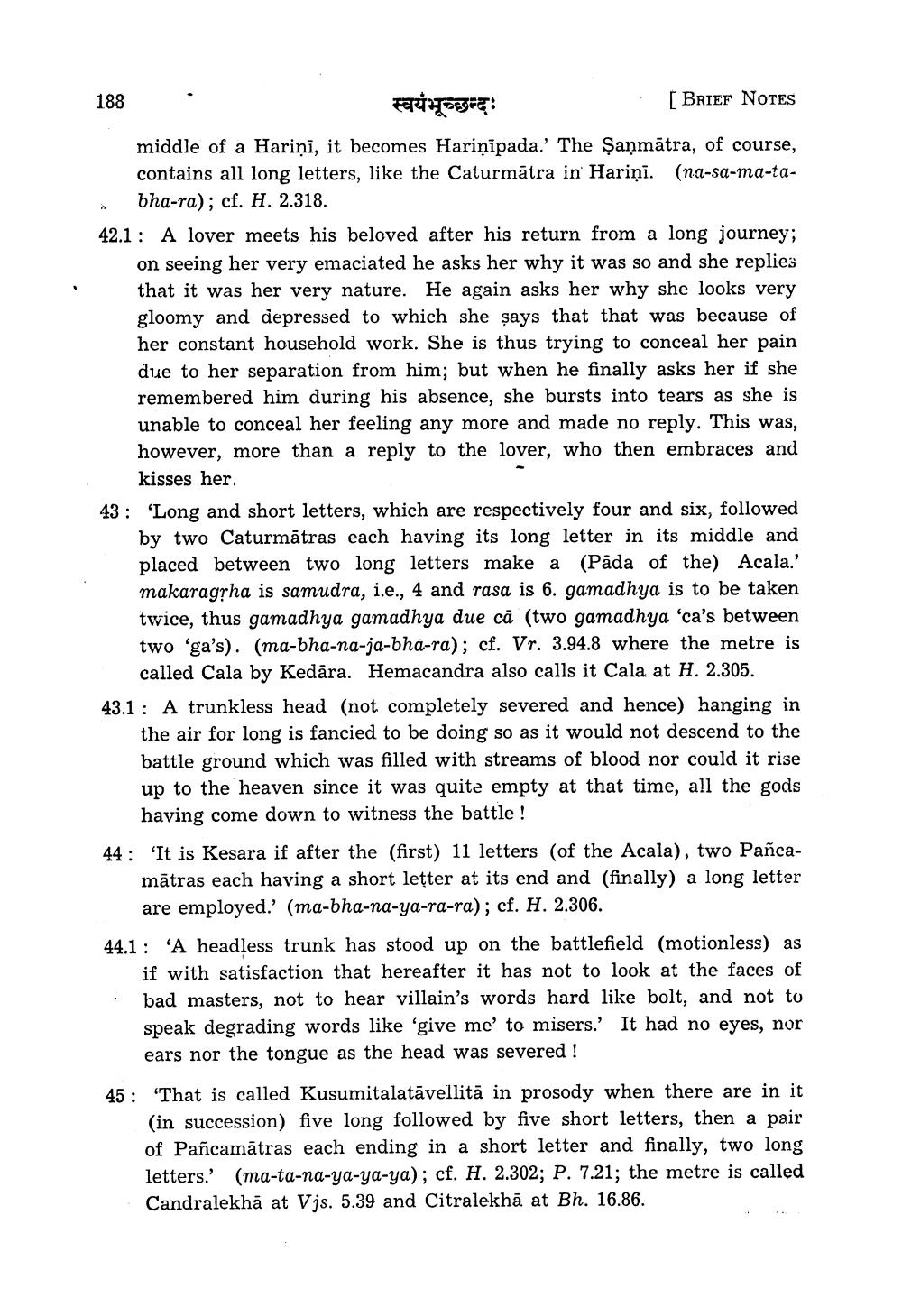________________
188
स्वयंभूच्छन्दः
[BRIEF NOTES middle of a Hariņi, it becomes Hariņipada.' The Şanmātra, of course, contains all long letters, like the Caturmātra in Hariņi. (na-sa-ma-ta
bha-ra); cf. H. 2.318. 42.1: A lover meets his beloved after his return from a long journey;
on seeing her very emaciated he asks her why it was so and she replies that it was her very nature. He again asks her why she looks very gloomy and depressed to which she says that that was because of her constant household work. She is thus trying to conceal her pain due to her separation from him; but when he finally asks her if she remembered him during his absence, she bursts into tears as she is unable to conceal her feeling any more and made no reply. This was, however, more than a reply to the lover, who then embraces and
kisses her. 43 : 'Long and short letters, which are respectively four and six, followed
by two Caturmātras each having its long letter in its middle and placed between two long letters make a (Päda of the) Acala.' makaragîha is samudra, i.e., 4 and rasa is 6. gamadhya is to be taken twice, thus gamadhya gamadhya due că (two gamadhya 'ca's between two 'ga's). (ma-bha-na-ja-bha-ra); cf. Vr. 3.94.8 where the metre is
called Cala by Kedāra. Hemacandra also calls it Cala at H. 2.305. 43.1 : A trunkless head (not completely severed and hence) hanging in
the air for long is fancied to be doing so as it would not descend to the battle ground which was filled with streams of blood nor could it rise up to the heaven since it was quite empty at that time, all the gods
having come down to witness the battle ! 44 : 'It is Kesara if after the (first) 11 letters (of the Acala), two Pañca
mātras each having a short letter at its end and (finally) a long letter
are employed.' (ma-bha-na-ya-ra-ra); cf. H. 2.306. 44.1: 'A headless trunk has stood up on the battlefield (motionless) as
if with satisfaction that hereafter it has not to look at the faces of bad masters, not to hear villain's words hard like bolt, and not to speak degrading words like 'give me' to misers.' It had no eyes, nor ears nor the tongue as the head was severed !
45: "That is called Kusumitalatāvellita in prosody when there are in it
(in succession) five long followed by five short letters, then a pair of Pañcamātras each ending in a short letter and finally, two long letters.' (ma-ta-na-ya-ya-ya); cf. H. 2.302; P. 7.21; the metre is called Candralekhā at Vjs. 5.39 and Citralekhā at Bh. 16.86.




